It all probably started in the autumn of 2013 in Joensuu.
The Chair of the National Coalition Party, Jyrki Katainen, at that time the Prime Minister of Finland, gave a speech to a group of ministers from his party where he warned that the common good and the decision-making aiming to accomplish it was being threatened. “Finding major general consensus on a number of issues has become increasingly difficult.”
Not long after the speech, Taru Tujunen, the Secretary General of the National Coalition Party, put the message even more succinctly: “Politics is broken.”
In the past three to four years, this conclusion has become more widespread. The Finns Party has also adopted the motto, using it as their slogan for a radio advertising campaign aiming to recruit candidates for the Finnish local elections in the spring of 2017. At the same time, the same conclusion has been spreading all over the world: in the UK, political analysts were talking about the breakdown of politics after the Brexit referendum; the US media too after the phenomenon known as Trump caught both mainstream parties off guard; and in Europe there was little surprise at the Italian constitutional referendum held in December 2016.
The public had sneaked up on the political elite. And whenever the population and the elite are in disagreement, the people will always win, as is the case in a democracy. However, perhaps it is not politics itself that is broken, but, instead, that we are lacking dialogue and trust between the people and the political decision-makers. This lack of trust makes responsibility difficult and decision-making tricky.
Jyrki Katainen’s original speech and analysis could be seen as a portrayal of his personal frustration. Having spent two years as Finland’s prime minister and, prior to that, four years as the Minister of Finance and nearly 10 years as the Chair of the National Coalition Party, the professional politician had been led to believe that the Finnish system for political decision-making had reached a dead end. “Finding major general consensus has become increasingly difficult on a number of issues,” Katainen said.
Erkka Railo, a Senior Researcher at the Centre for Parliamentary Studies of the University of Turku, agrees with Katainen’s analysis. It is true that the roughly two-decade era of consensus has come to an end, and the new, post-consensus era seems chaotic for politicians and people alike. Nevertheless, this is not an unforeseen situation.
According to Railo: “Politics was far more broken for a while in the early 1970s. There was the Communist Party, which had so many internal conflicts it was unable to commit to governmental co-operation. There was the National Coalition Party, which had to be kept outside the government as a result of a demand from the USSR. The Finnish Social Democratic Party was under the influence of the trade unions and was thus unable to compromise on anything. President Kekkonen was forced to establish a caretaker government to take care of everyday, routine matters.”
However, people tend to have short memories when it comes to politics.
“We remember the situation 10 years ago when there were only minor differences between the political parties,” adds Railo. “Even the National Coalition Party and the Left Alliance were able to work in the same government, and did so more than once. In fact, all of the existing parties could work side by side in the government in turn, and all of them participated in the governmental co-operation. The era of general consensus, which started with the dissolution of the Soviet Union, started to crack during the last government’s term.
“We can trace the era of consensus back to 1987, which marked the first time when the Finnish Social Democratic Party and the National Coalition Party were involved in the government together. For roughly two decades, the general understanding was that there were no true alternatives to the prevalent politics. Deficit spending was prevented, expenditure cuts were introduced and Finland became part of the global economic system. This was a particular milestone for the Finnish Social Democratic Party, which shifted its politics closer to the National Coalition Party. The era of co-operation came to an end in 2015 when both parties announced before the parliamentary elections that they would no longer be willing to establish a government that would include the other party.”
Nevertheless, it would be overly simple to point the blame for the breakdown of Finnish consensus politics at the governmental partners Alexander Stubb (NCP) and Antti Rinne (SDP) who were not on good terms. The rift between the parties reflected a bigger trend.
“After a fairly harmonious period, we had once again entered a situation where the divides between political parties were growing. This talk of politics being broken is a result of this,” says Railo.
Democracy is about finding common ground between different interests. This, in turn, requires compromises. Whenever there is a compromise, a large number of people will be left unsatisfied, which will result in criticism. When people’s ideologies and perspectives are driven ever further apart, it will be even harder to arrive at these compromises. Again, this leads to an experience of politics no longer working.”
The difficulty of taking responsibility
One of the ministers in Jyrki Katainen’s frustrated government was Merja Kyllönen of the Left Alliance. Kyllönen, currently a MEP in Brussels, says she was frankly frustrated with the Finnish system of decision-making.
“On a broad scale, politicians no longer had the capability to carry the responsibility we are given through elections. In fact, the time I’ve spent here in the European Parliament has only enhanced this perception of Finnish politics, as here we are free of the polarisation between the government and the opposition. The Finnish political system is currently characterised by an inability to work together.”
Kyllönen, who was a Member of the Finnish Parliament from 2007 to 2014 and the Minister of Transport and Communications in Katainen’s Government from 2011 to 2014, adds that: “The controls, discretionary power and authority to think of political decision-making are in the hands of an army of lawyers and public officials. Politicians hide behind the lawyers and officials. It is so easy to say that we cannot do such and such as the lawyers say this or EU won’t allow us that. Authority, the right to have an opinion, the power to make decisions, have all been outsourced to something intangible.
“Perhaps there are historical reasons for this. Finland has always been living under someone else’s regime. Now we have grown up to think that we are operating under the EU. That we cannot have our own politics, and we do not have to take responsibility.”
Kyllönen admits that a political elite or the authority of the public officials may not be new phenomena, but believes that their significance has increased in an era where politicians spend more and more of their energy on personal brand management and public bickering.
“These phenomena have culminated as a new generation of politicians has arrived on the scene. Exercise of authority and realisation of the possibilities provided by politics are extremely poor. While the politicians seek publicity, in reality they will do nothing to change the country or to benefit its citizens,” she says.
“As a result, politicians no longer appear to represent any sort of underlying values. It does seem that they are not trying to make a difference of any kind. As a result, voters are even more likely to support extreme candidates in order to make at least some sort of a change, to wake politics up.”
While the political researcher Erkka Railo suggests that the current political crisis is a result of the end of the era of consensus and the growing divides between the political parties, MEP Merja Kyllönen expands the analysis by describing how the parties are increasingly unable to share responsibility and carry the burden together.
“Dealing with responsibility in the Finnish coalition government was frankly hellishly difficult. Everyone was only interested in doing nice and good things. This will lock up the Finnish political system for as long as we fail to elect a prime minister who dares to be a political leader.”
According to the former MP and minister, the political discussion in Finland is dumbed down by the polarisation between the government and the opposition, where the parties sitting in opposition are completely ignored in decision-making: “The discussion between the government and the opposition altogether lacks a sparring tone. Any alternatives or potential for new ideas get lost in the process. We have no operational concept that would allow us to be heard and where we would genuinely listen to the ideas of others.
“When a party is moved from the government to the opposition in Finland, it is as if all of its politicians lose all their expertise and voting rights at once. As if they would turn into complete buffoons. The same people who have acquired immense know-how and networks as members of the previous government are set aside for the next four years. How can a small country afford to do this?
“I mean, good God, it was as if I was wearing a plastic bag over my head when I was working as a minister. We didn’t really know how to see what was going on in the world and how things should be changed. We didn’t know how to do it because we didn’t have to.”
Kyllönen wonders whether a minority government could shake up the political culture of Finland. If the government were genuinely forced to seek the parliament’s approval for its legislative proposals and construct its arguments and coalitions in a way that succeeded in engaging opposition parties in the reforms, it could be that the opposition’s one-dimensional criticism of the government would finally subside.
“Even one term like that could act as an experiment to shake things up. Here in Brussels, I’ve been wondering whether Finnish people can really afford the polarisation and conflicts that mark our political system. This is the biggest obstacle standing in the way of our competitiveness.”
Successes could also be emphasised
If we want to, we can see signs of the crisis in current politics in a number of places. MEP Kyllönen describes how decisions are made in the parliament and how the set-up of the government and the opposition makes political discussion stagnant and thus paralyses any decision-making.
Another crisis can be found between the people and the political decision-makers. When the political map formed at the turn of the 20th century no longer reflects the way people see themselves, their collective identities and the dividing lines they consider meaningful, representative democracy fails to be representative. When people feel that none of the parties represent their values, how could they feel that they are represented in a system of decision-making organised along party political lines?
In addition, the more chaotic the decision-making appears, the louder the population’s criticism of the motivation and ability of politicians to take care of shared issues.
Erkka Railo believes it is a rather peculiar situation: “I am personally under the impression that quite a lot of things continue to run fairly smoothly in politics.
“The problem is that, to an extent, politicians also personally choose to focus on issues that will not move forward. They complain about these things in public and, as a result, publicity is even more focused on these failures than the politicians themselves. What is tossed aside here is that a lot of things are running just as planned. The opinions of the public, then, reflect the critical point of view of the media, and understandably so. Perhaps the media could also pay a little more attention to the positive things accomplished in politics – although I do understand that it’s not really the core task of political journalism.”
However, the political researcher points out that criticising decision-makers or the political system is nothing new. “After all, people have criticised political systems throughout the history of democracy. Probably before it even existed.”
Kari Palonen, a professor of political science at the University of Jyväskylä, agreed with this sentiment in his book published in the run-up to last parliamentary elections, Kuka hullu haluaa poliitikoksi (Who in their right mind would want to be a politician?; Teos, 2015). In an interview in the book, Palonen described the basic nature of the parliamentary system as “the politics of different views and the disputes, or ‘dissensus’, i.e. discord and debate”.
Based on Palonen’s analysis, ever since its conception the democratic process has been characterised by accusations of politicians being somehow rotten, impotent or evil.
“The fall from favour of politicians is linked to democratisation and the parliamentary system in European countries. While these mechanisms make room for politicians elected through a popular vote, public officials, the business elite, artists, writers and the universities have been suspicious of the process where one succeeds through demagogy, speech and taking the people’s vote.” In essence, being popular among the common people will always be a sign of unreliability for some of the population.
When Jyrki Katainen announced his intention to leave his position as the prime minister, there were Facebook posts wishing him a nice trip to the “furnace”. Posters were spread around Helsinki depicting the beheading of Katainen. The US Presidential elections and the explosion in fake news during the elections took the criticism and hate speech directed at politicians to a whole new level; indeed, many currently fear this level of vitriol will escalate even further in Europe and also Finland.
However, Professor Palonen is keen to emphasise that the phenomenon of disdain or scorn directed at politicians is nothing new: “Even a hundred years ago, you could have said that politicians had the worst reputation they have ever had. We shouldn’t be too concerned with the disapproving comments, as they are an indirect recognition of the necessity of politicians.”
Many kinds of political struggle in Europe
Of course, political crises should be kept in perspective. Although we in Finland feel that our political decision-making system is paralysed or the government’s hands are tied, there are societies in Europe where political systems have been thrown into far more serious turmoil.
Last year, Spain had no government for almost the entire year, while the country’s previous prime minister, Mariano Rajoy, served as the acting prime minister for that period. Attempts to unravel this knot with new elections were futile. In the end, Rajoy formed a new minority government in the country.
In Italy, Prime Minister Matteo Renzi, who called for a constitutional reformation, was forced to resign after being defeated in the referendum he had proposed. The populist Five Star Movement was considered the winner of the referendum.
The Five Star Movement is one of the most successful new rebel movements and parties in Europe. MEP Daniela Aiuto is one of the active members of the party and describes the path her route to Brussels took: “As for probably everyone who is socially aware in Italy these days, I first became active on the internet. I started blogging and participating in discussions, then I became involved in local events. The events started to grow bigger and bigger.”
Aiuto had no personal connection to politics before joining the Five Star Movement established by Comedian Giuseppe “Beppe” Grillo. However, Grillo’s criticism of Italy’s corrupted current system and the idea of direct democracy, which has been part of the ideology of the Five Star Movement since its beginning, appealed to her.
“The political system in Italy no longer deemed representative of the people. It seemed obvious that democracy had reached a crisis. I wanted power to be returned to the people. Direct democracy also intervenes in the corruption. In Italy, politicians receive enormous amounts of money from organisations that stay hidden, including the mafia. It used to be that you could not rise to a leading position in politics in Italy without large sums of money. One of the biggest accomplishments of the Five Star Movement is that we have put an end to this.”
Aiuto says that, personally, she funded her campaign to become elected as an MEP with just a few hundred euros: “We have proven that it is possible to get into politics without the backing of rich sponsors.”
Not unlike many other populist movements, the Five Star Movement also struggles to present a unified political front. The rebel movement has attracted a motley crew of people under its umbrella – some of its representatives are perceived as right-wing extremists, even fascists – and its co-operation with traditional political groups is hindered by the fact that the party cannot be placed on the traditional political map.
“We are neither on the right nor the left. We agree with right-wing parties on some matters while find common ground on others with the left. In the European Parliament, we belong to a group that is linked to the right wing, but vote in line with the left on some issues. We don’t think about the old ideological divides, but seek the best possible solutions instead,” says Aiuto.
“Our movement is less than 10 years old, which makes it prone to change. We constantly do things that go very well, while making mistakes at the same time. But we are constantly trying to develop the movement in a better direction.”
In Finland, the Finns Party is going through a similar identity crisis, dictated from the outside: The party’s fiscal policy is considered left wing, while its social values are perceived conservative. Indeed, it has been proposed that a division of parties into social conservatives and social liberals would be more meaningful than the traditional division into left-wing and right-wing parties. Typically, there is a divide within, and not between, many traditional parties.
“I don’t want to say that there is no future for traditional parties, but the world is changing so quickly they do seem to struggle to keep up,” says Aiuto. “It often seems that the people are more prepared for change than the traditional parties. Trump is a good example of this: the Republicans were not ready, but the American population still voted for Trump as President.”
Aiuto, who is 41 years old, has already decided that she will not stay in politics for good. She thinks it is fairer for the electorate that there is a change in politicians at regular intervals: “Two terms should be the maximum. After that, you should return to real life. If you stay in institutions for too long, you will drift too far apart from the real everyday lives of people. This is highly common in Italy; most politicians haven’t worked anywhere else in decades.”
Honouring compromises
ERRIN is a Brussels-based lobbying organisation that aims to pursue the cause of regional, including municipal, stakeholders in the EU’s decision-making processes. In EU circles, Richard Tuffs, the Director of ERRIN, is a well-known speaker, dubbed by one MEP as “the best lobbyist in Brussels”.
The experienced lobbyist has a view of what is broken in politics and how we could restore people’s trust in politics: “Politicians spend time and energy on things people are able to perceive. City councils will spend hours debating on where to put a park bench, while, at the national and EU level, decisions are made on huge projects without any public debate worth noting,” Tuffs argues.
“People partly lose connection with politics because the issues dealt with in politics appear too distant to them. They don’t understand the issues and will thus settle for the simple explanations provided by politicians. Unfortunately, many politicians consciously reinforce a false idea. It serves their interest and authority to present things as if they were very complicated, while, at the same time, making the political battles seem simple. It is in the interest of politicians to show up after negotiations and say that the evil opponent was able to push through its evil agenda. This helps create images of the ‘enemy’ and an idea of a black-and-white world.”
This is a harmful notion, as it is not true. It is rare that one politician’s agenda is a purely good and the other’s is pure evil. “I do believe that the majority of professional politicians feel their cause is good. And the majority of people interpret their motivation as the complete opposite. Perhaps people don’t trust the intentions of politicians, as the entire image they’ve constructed of politics seems unreal.”
Tuffs believes that it is possible to restore people’s trust in politics with more honest discourse. “What if politicians came out of a meeting and said that ‘this was our goal, we weren’t able to accomplish everything we set out to do, but we made some nice compromises, we are satisfied with this’. Not putting a negative spin on things, but being honest instead. Describing the complexity of politics, pointing out your own accomplishments, but not painting a picture of the others as the enemy.”
Tuffs wishes that politicians would operate more in grey areas. Instead of extreme objectives, compromises should be honoured again. “I would respect a politician who, after gaining power, is willing to continue the projects launched by his or her predecessor and build on what has been previously accomplished. This would be an alternative to tearing apart or denying the accomplishments or objectives of a different party.
“Of course, this would require the person to be satisfied with working in a grey area between his or her goals on one extreme and those of the opponents on the other. We should talk more about these shades of grey rather than trying to point out, in black and white, why some other solution or party is strictly in the wrong. All true progress occurs in this grey area.”
In fact, this analysis meets the snapshot outlined by Erkka Railo, the political researcher. We have come to a dead end as the political parties have again grown apart from one another after decades of consensus, and it is no longer as easy to arrive at concessions, compromises or mutual politics.
It could therefore be said that politics, or at least ideology, has returned to being just that: politics. This could even be considered a positive thing.
There could also be opportunities afforded by such a breakthrough in attitude. While there is a threat that the rebel parties around Europe, such as the Five Star Movement, may lead to dangerous populism and nationalism, they could just as well lead to a renewal of democracy.
“To my own thinking, the development of individualisation carries a lot of positive strength. True democracy is strengthened, people make their own choices without asking for – or needing – permission,” said Jyrki Katainen in his speech in Joensuu in 2013. “In the past, enhancing choice and the freedom to choose was limited to the agenda of few. An increasingly individualistic world might also end up feeding creativity.”
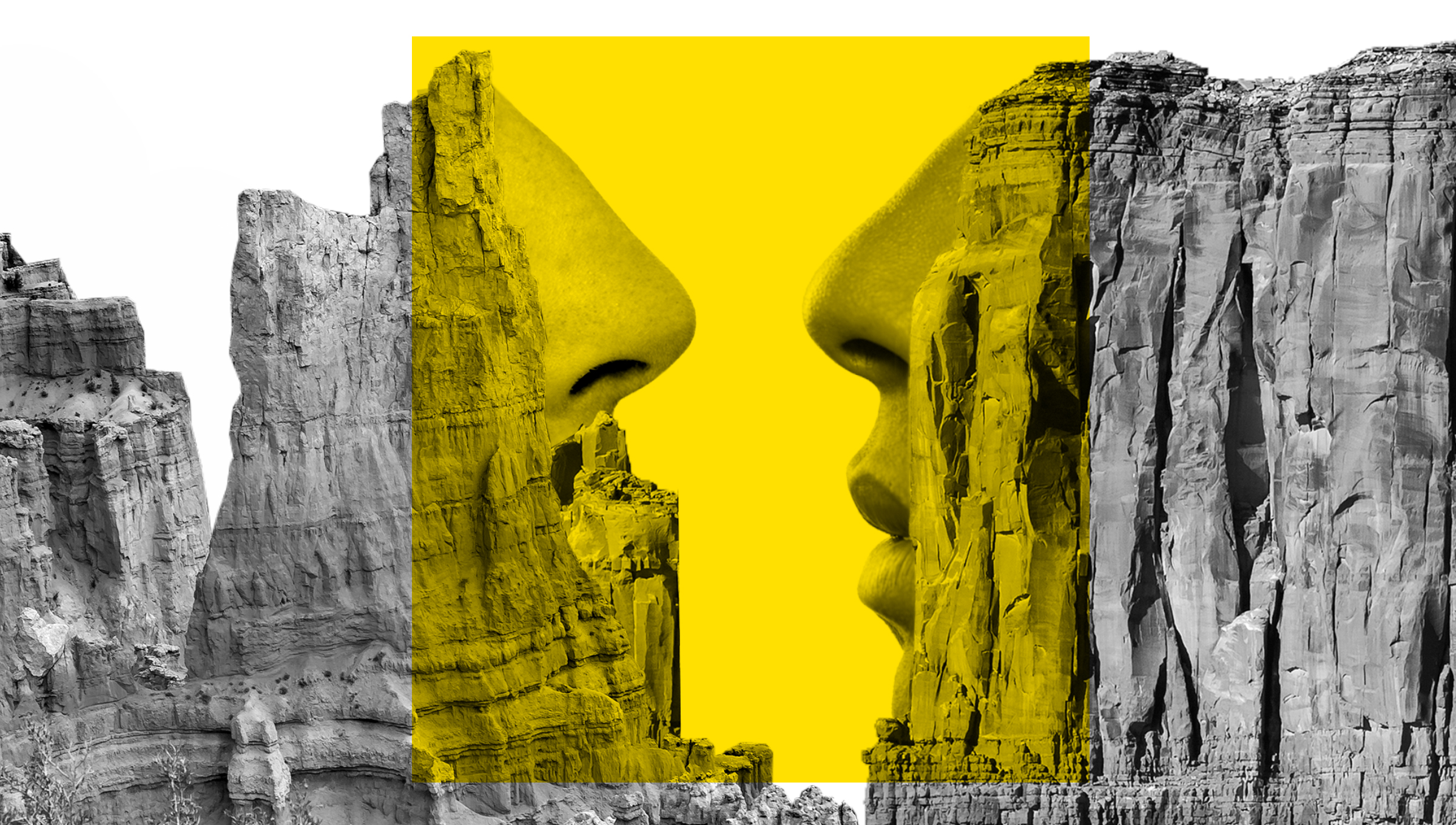

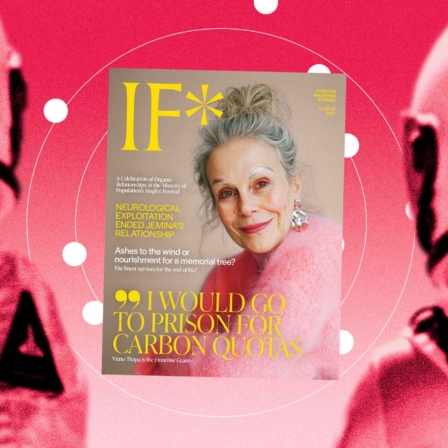
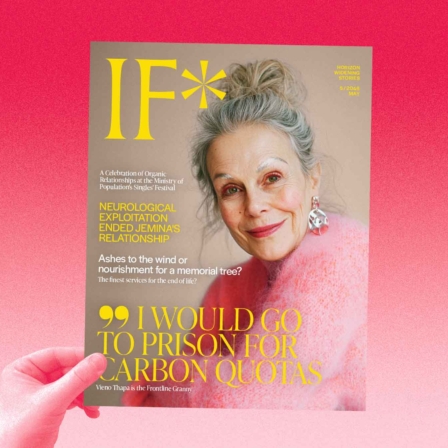
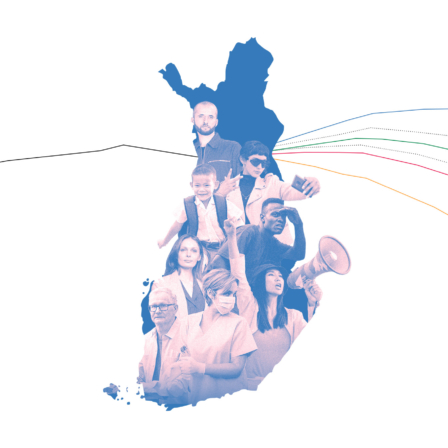
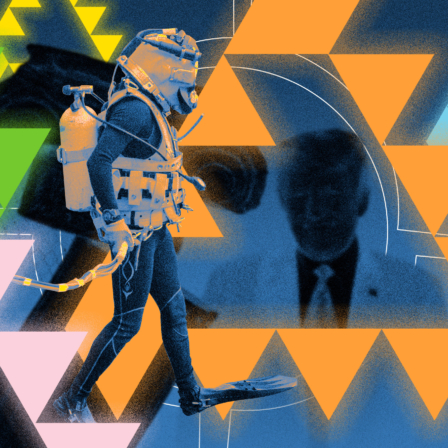
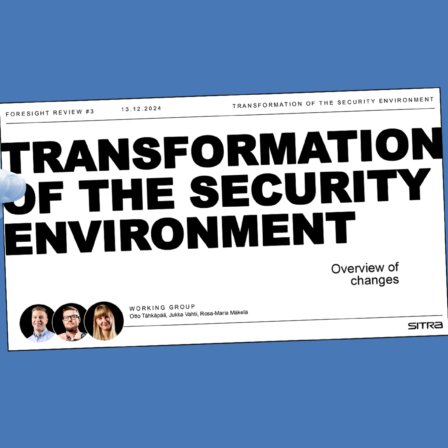
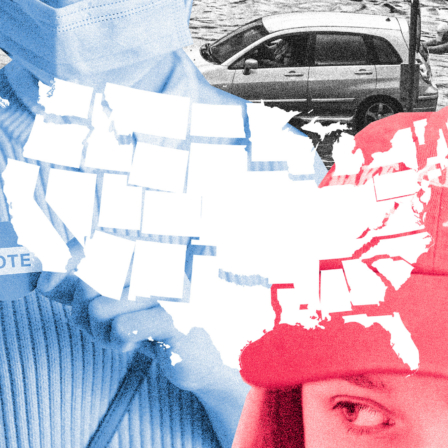
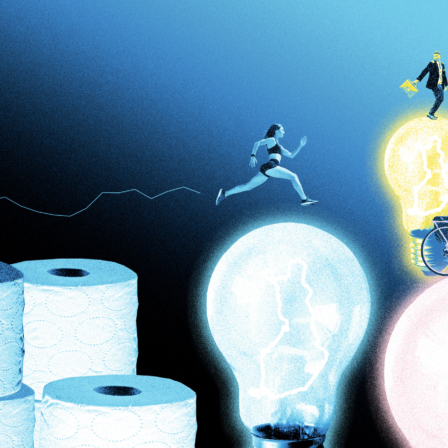

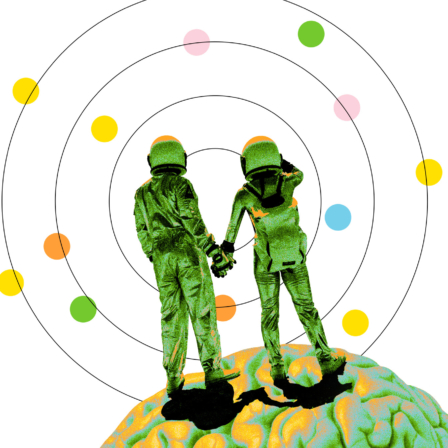




Other articles
Share these too